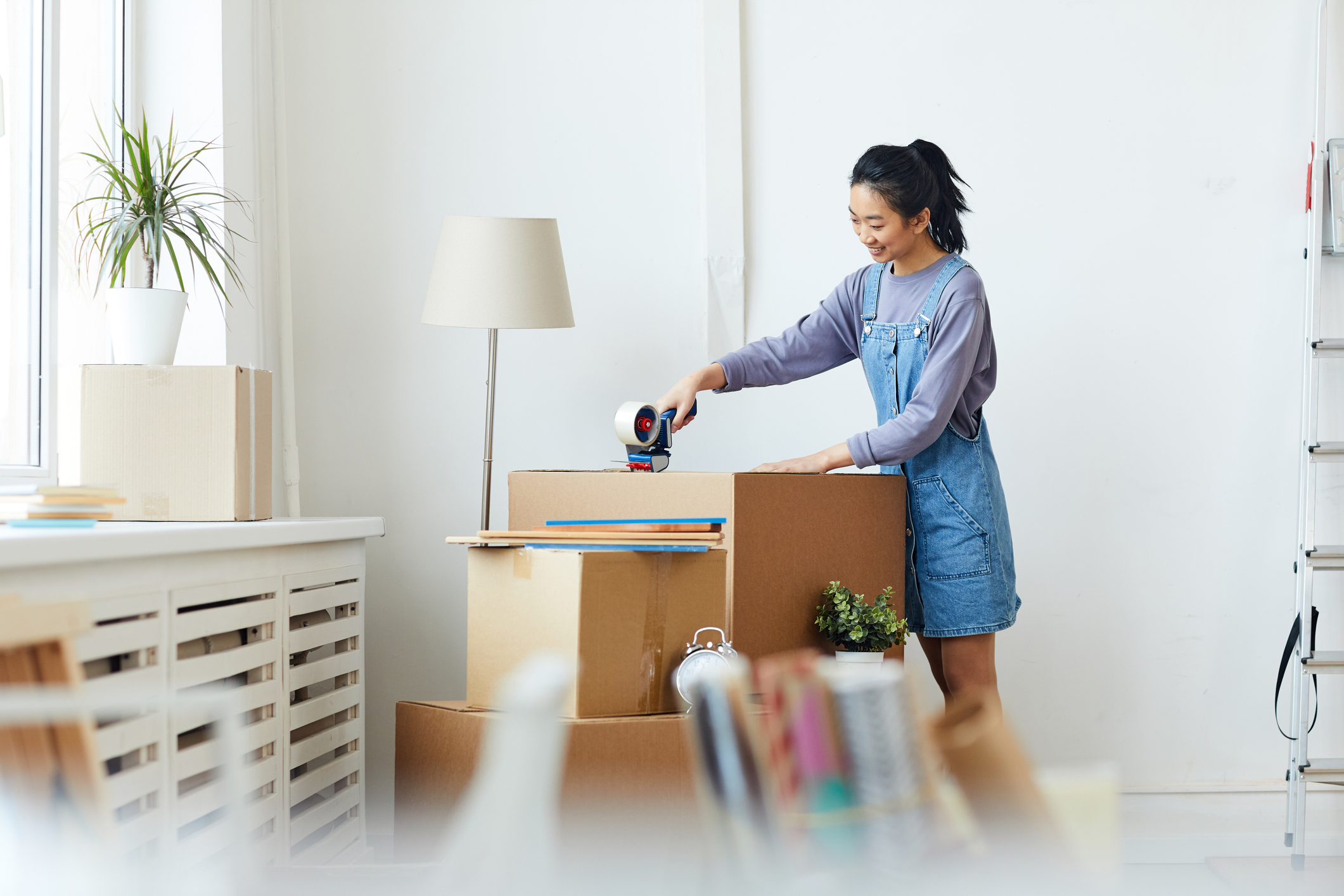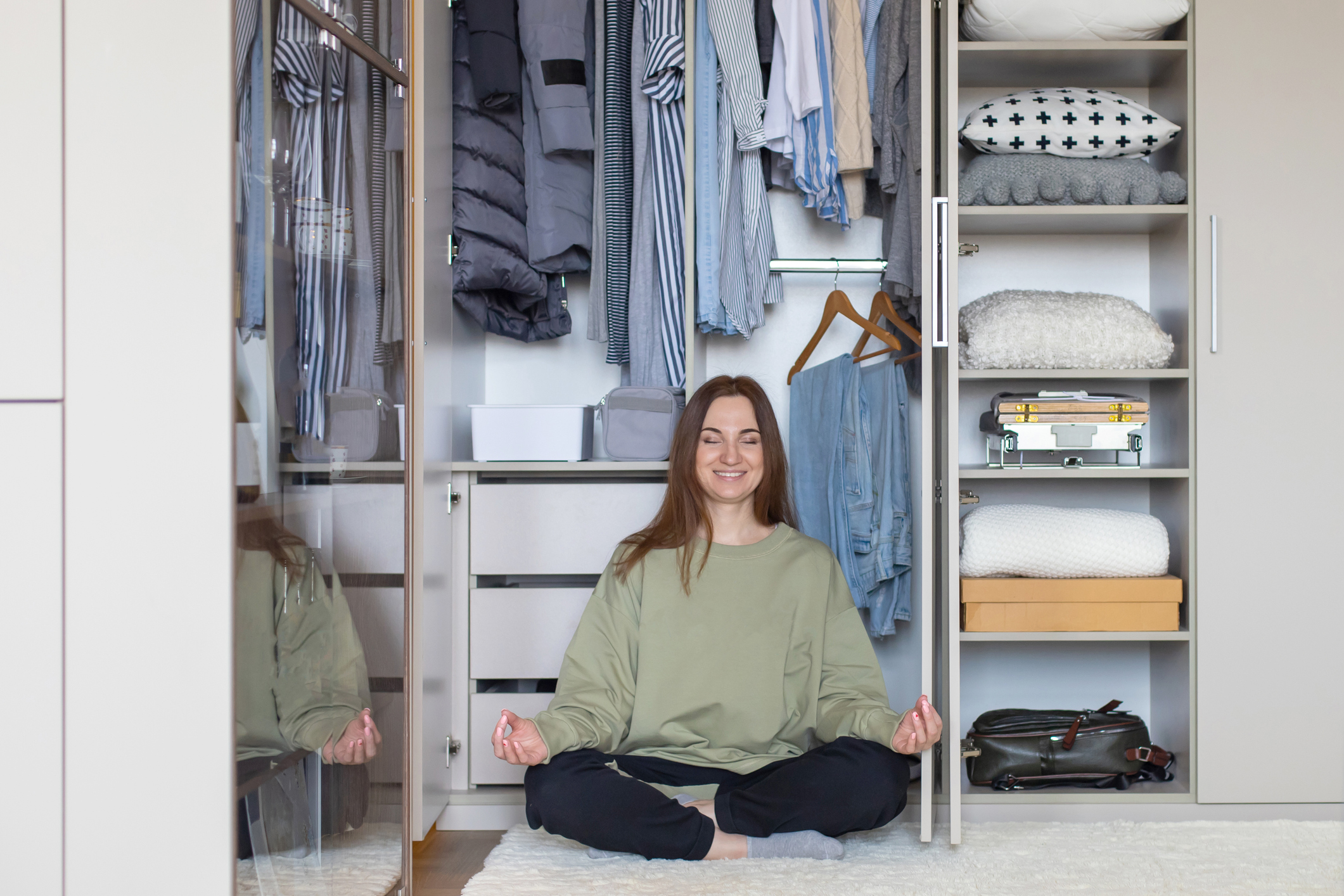
Celebrity news, beauty, fashion advice, and fascinating features, delivered straight to your inbox!
You are now subscribed
Your newsletter sign-up was successful
Did you know? Research has found sorting unnecessary belongings can boost your mood, ease anxiety, and more.
If you've watched BBC One's Sort Your Life Out - the new show where Stacey Solomon and a team of professionals help families too, quite literally, sort their homes out - chances are, you're after some decluttering tips yourself.
Research has found that decluttering can not only help to boost your mood, but also ease mental health conditions like anxiety, and improve productivity, too.
So, we've picked the brains of the minimalist and Discovery of Less author Chris Lovett - he calls himself the "cockney bloke version of Marie Kondo" and has some great tips up his sleeve for collecting less and living more.
"Brits hoard more clutter than the rest of Europe combined - an estimated £81.6 billion," he shares. "The average household has thousands of pounds worth of unused clutter."
If that's you - keep reading. Here, Lovett breaks down his top tips for decluttering. Don't miss our guides to meditation benefits, breathwork training, and mental health help, while you're here.
Decluttering tips: your guide
So, what's the definition of decluttering?
It's the practice of offloading unused and unloved belongings. "It's now becoming an important part of modern life," shares Lovett. "Clutter, at a certain point, can consume you and wear you down."
Example A: mainstream shows like Sort Your Life Out are once again uncovering the UK’s clutter problem, shares the expert. "It's no surprise that regularly sorting through your belongings - and only keeping the things you actually need and use - is back on everyone's radars", he continues.
Celebrity news, beauty, fashion advice, and fascinating features, delivered straight to your inbox!
How does decluttering affect your mental health
Did you know? There is a growing body of evidence that clutter, in all its shapeshifting forms, has a significant drain on our well-being, shares Lovett.
How so? In sort, physical clutter is known to increase stress, anxiety, and low-grade depression. "It can lead to mental clutter - the feeling of overwhelm and a never-ending list of to-do's," he goes on.
It's only got worse in the last year or so as most of us have spent the last two years or so at home thanks to nationwide lockdowns, shares Lovett. "In doing so, we've begun to fill up our spaces," he goes on. "We're bombarded with advertisements and well-crafted Instagram posts giving us a glimpse of what life could be like - if only we bought more stuff."
In reality, of course, we often don't need said stuff and end up with cluttered living spaces and in turn, a cluttered headspace.
It's worth pointing out here: decluttering won't be for everyone, and isn't a magic form of mental health help. If you're struggling, it's always worth seeing a medical professional. That being said, if you're suffering from low-grade mental health issues, research has shown that decluttering may be one way to ease your stress.

Decluttering tips: 6 steps to less mess
So, you're keen to get decluttering? These guiders from Lovett will help you get started.
1. Focus on what you can gain
First things first: before you start your decluttering process, make sure you're in the might mindframe to do so. "Focus on what you will be able to gain from letting go," recommends Lovett. "Look at it this way: rather than getting rid of things you love, you'll no longer be burdened by unloved things staring at you from a shelf."
He goes on to add that there are plenty of places to sell unwanted items now - think Gumtree, Facebook Marketplace and Depop, to name a few. Narchie has also just launched, a Depop for homeware. "Lots of people enjoy the increased calm that additional space around the home brings, as well as the injection of more time from not having to move or clean as many things," he shares.
2. Start small
In other words, don't give away anything that has sentimental value or means something to you.
Try this: Start with the things you genuinely don't use or haven't used for years, he advises. "Focus on one drawer, one cupboard, or one part of a room and then slowly build from there. As you work, make sure to identify clear sell, donate, recycle and rubbish piles," he continues.
3. Donate ASAP
Too many people have good intentions but will end up with bags of clothes or items in their garages or car boots, Lovett shares. "We're all busy - but make life easier for yourself," he recommends.
Try this: Have your items collected or take the clutter where it needs to go as soon as possible, otherwise you’ve just moved stuff from one place to another, he explains.

4. Identify trigger words
This one's important. "Whenever you hear yourself say “just in case” or “one day”, identify them as red flags," advises Lovett. "The likelihood is you’ve just made up a scenario where the thing you are holding features prominently. If you haven't used it a lot already, it's unlikely it'll feature in your future at all."
5. Do a digital declutter
This can be just as mood-boosting as a physical declutter. "Our devices are riddled with old contacts, email subscriptions, and WhatsApp groups," shares Lovett.
Try this: start deleting apps, messages, and duplicate photos, and unsubscribe from unnecessary email alerts. "This digital decluttering practice gets you into good habits you can then use on your material possessions," the expert explains.

6. Ask yourself: heirlooms or responsibilities?
And finally, be careful of what you hold onto. "You want to pass down items friends and family will cherish, not feel burdened with," he explains.
Still not convinced? Know this: the benefits of getting shot of unused and unloved things are far-reaching, or so shares Lovett. "It can cause huge positive ripple effects - not just for your own health and sense of achievement, but for your community as well," he concludes.

Ally is Marie Claire UK's Senior Health and Sustainability Editor, a well-regarded wellness expert, ten-time marathoner, and Boston Qualifying runner.
Utilising her impressive skillset and exceptional quality of writing, she pens investigative, review and first-person pieces that consistently demonstrate flair and originality.
As well as writing, Ally manages a team of freelancers, oversees all commissioning and strategy for her pillars, and spearheads the brand's annual Women in Sport covers, interviewing and shooting the likes of Mary Earps, Millie Bright, and Ilona Maher. Shortlisted for three BSMEs and winning one in 2022, Ally lives and breathes her verticals: her eye for a story and connections within the wellness sphere are unrivalled. Follow Ally on Instagram for more.
